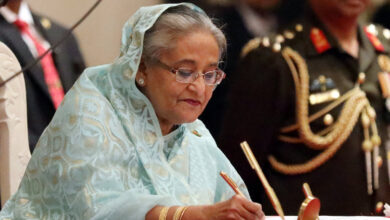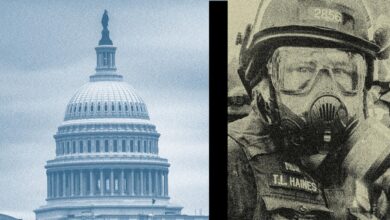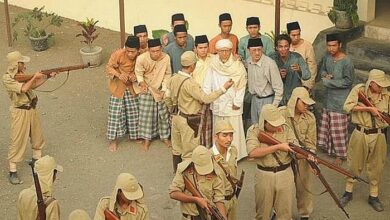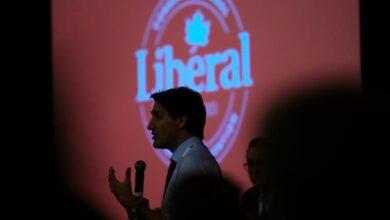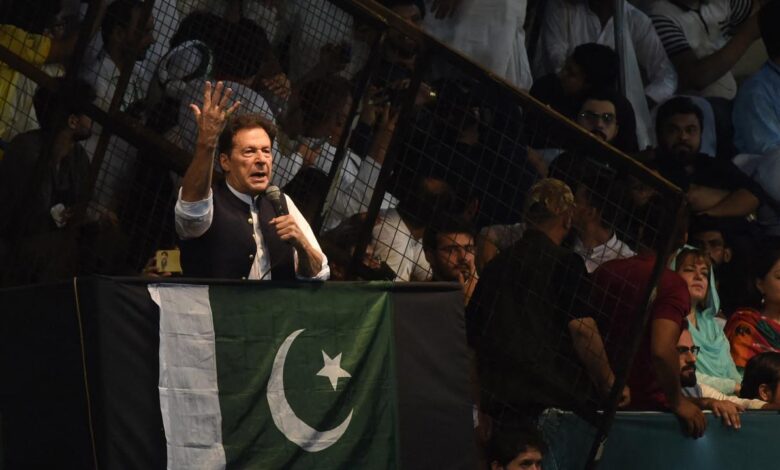
Imran Khan Faces Mounting Pressure in Pakistan
Imran Khan comes under further pressure in Pakistan, a situation escalating rapidly amidst a whirlwind of legal battles, shifting public opinion, and international scrutiny. The former Prime Minister’s political career hangs in the balance as he navigates a complex web of accusations and challenges, sparking intense debate and uncertainty within the nation. This situation isn’t just about one man; it’s a reflection of Pakistan’s fragile political landscape and its potential consequences for the country’s future.
From the courtroom dramas to the streets filled with protestors, the pressure on Imran Khan is multifaceted. His legal battles are far-reaching, touching on corruption allegations and threatening his political future. Meanwhile, the public’s opinion remains divided, adding another layer of complexity to the already volatile situation. The economic implications are significant, with investor confidence wavering and the potential for instability looming large.
All eyes are on Pakistan, as the world watches how this pivotal moment will shape the country’s trajectory.
Imran Khan’s Legal Battles
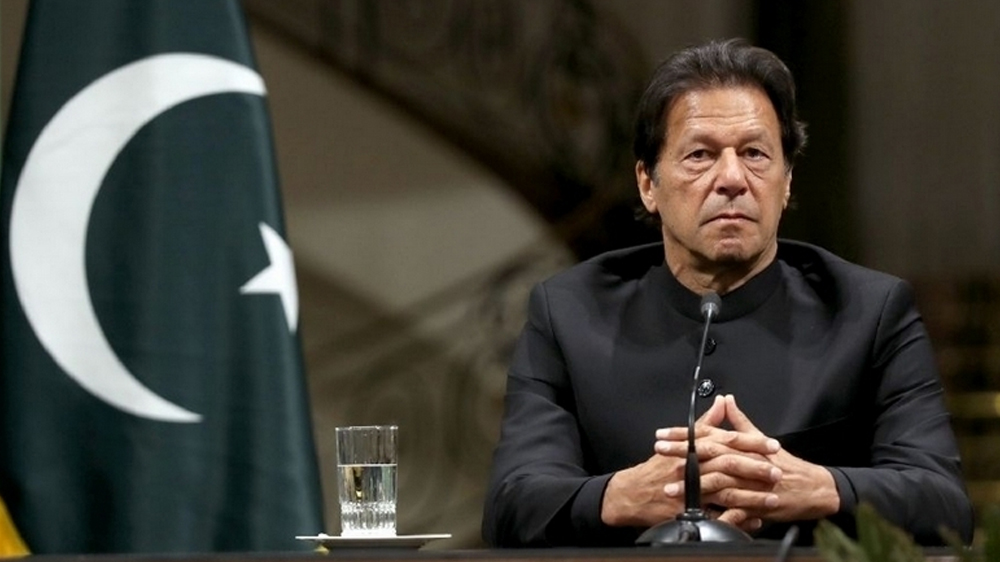
Imran Khan’s political career in Pakistan has been dramatically intertwined with a series of ongoing legal battles. These cases, ranging from accusations of corruption to terrorism-related charges, have significantly impacted his political standing and the country’s political landscape. Understanding the intricacies of these legal challenges is crucial to comprehending the current political climate in Pakistan.
Timeline of Key Legal Events
The legal battles against Imran Khan have unfolded over several years, escalating in intensity since his removal from office in April 2022. Key events include the registration of multiple FIRs (First Information Reports) against him and his associates, arrests, court appearances, and ongoing investigations. While a precise chronological listing of every event is beyond the scope of this blog post, significant milestones include the initial wave of cases filed after his ouster, the high-profile arrest in March 2023 related to the Al-Qadir Trust case, and the subsequent bail hearings and appeals.
Further cases continue to be registered, adding to the complexity of the legal situation. The pace and nature of these proceedings are subject to ongoing developments and judicial processes.
Accusations Against Imran Khan: Categorization and Evidence
The accusations against Imran Khan can be broadly categorized into several areas. One significant category involves allegations of corruption and misuse of public funds. These cases often involve intricate financial transactions and require detailed scrutiny of documentation. Another major category centers on allegations related to the Al-Qadir Trust, a charitable trust, with claims of land acquisition irregularities and financial mismanagement.
Evidence presented in these cases typically includes financial records, witness testimonies, and expert opinions on financial transactions. Finally, more recent charges involve allegations of inciting violence and terrorism following his arrest, with evidence potentially including speeches, social media posts, and accounts of events surrounding the protests that followed. The nature and weight of evidence in each case are contested and subject to ongoing legal processes.
Comparison with Previous Instances of Political Persecution
The legal challenges faced by Imran Khan have sparked comparisons with previous instances of political persecution in Pakistan’s history. Critics argue that the sheer number and nature of the cases against him bear similarities to past crackdowns on political opponents. They point to the use of legal processes to target political rivals and suppress dissent as a recurring pattern in Pakistani politics.
However, supporters of the current government maintain that the legal actions against Imran Khan are based on genuine allegations and are being pursued through due process. This ongoing debate highlights the deeply polarized political environment in the country and the complex interplay between politics and the legal system.
Political Fallout and Public Opinion: Imran Khan Comes Under Further Pressure In Pakistan
The arrest and subsequent legal battles surrounding Imran Khan have sent shockwaves through Pakistan’s political landscape, triggering a complex interplay of reactions and shifting public opinion. The intensity of the fallout is directly related to Khan’s enduring popularity amongst a significant portion of the population, despite the serious allegations against him. This has created a deeply polarized environment, with consequences that extend far beyond the immediate legal proceedings.The reactions of different political parties have been sharply divided along ideological lines.
The ruling coalition, while maintaining a public stance of upholding the rule of law, has faced accusations of politically motivated prosecutions from Khan’s Pakistan Tehreek-e-Insaf (PTI) party and its allies. Opposition parties sympathetic to Khan have voiced concerns about due process and fair trial, amplifying accusations of selective justice. Conversely, parties aligned with the government have largely defended the actions taken, emphasizing the need to hold all individuals accountable regardless of their political standing.
This deep political chasm is fueling further instability and hindering constructive dialogue.
Reactions of Political Parties
The PTI, unsurprisingly, has vehemently condemned the actions taken against its leader, organizing protests and rallies across the country. These demonstrations, while expressing support for Khan, have also occasionally resulted in clashes with law enforcement, highlighting the volatile nature of the political climate. Conversely, parties within the ruling coalition have largely refrained from public displays of celebration, focusing instead on justifying the legal actions through statements emphasizing the importance of upholding the law and combating corruption.
Smaller parties have taken diverse stances, some aligning with the PTI’s criticisms, others supporting the government’s approach, reflecting the fragmented nature of Pakistan’s political landscape. The lack of a unified opposition response further complicates the situation.
Shifting Public Opinion
Public opinion remains deeply divided, reflecting the country’s existing political cleavages. While a significant portion of the population continues to support Imran Khan, viewing him as a victim of political persecution, others believe he should be held accountable for the allegations against him. Social media has become a battleground for competing narratives, with both sides using the platform to disseminate their perspectives and mobilize support.
The polarization is evident in the starkly different portrayals of events presented by different media outlets, further contributing to the division within the public. The long-term impact of this division on social cohesion remains a significant concern.
The situation with Imran Khan in Pakistan is getting intense, a real pressure cooker. It makes you think about how leaders facing internal strife often make rash decisions, kind of like the article I just read, donald trump would leave asia with only bad options , which highlights how limited options can lead to disastrous outcomes. The parallels are striking; Khan’s predicament underscores how difficult navigating complex political landscapes truly is.
Potential Consequences for Pakistan’s Stability
The ongoing political turmoil poses significant risks to Pakistan’s stability. Continued protests and potential further unrest could disrupt economic activity and social order. The deep polarization could further erode trust in institutions and exacerbate existing societal divisions. The international community is also closely watching the situation, with potential consequences for Pakistan’s relations with other countries depending on how the crisis is resolved.
Similar instances of political upheaval in other countries, such as the Arab Spring uprisings, highlight the potential for widespread instability and long-term consequences for national development and security. The potential for violence and further societal fragmentation is a very real concern.
Media Coverage Comparison
Media coverage of Imran Khan’s situation varies significantly across different news outlets. Pro-government channels tend to portray Khan in a negative light, emphasizing the allegations against him and downplaying the protests. Conversely, channels perceived as sympathetic to the PTI present a more positive image of Khan, highlighting the alleged political motivations behind the legal proceedings and emphasizing the widespread public support for him.
International media outlets generally offer a more balanced perspective, though their coverage often reflects pre-existing biases and geopolitical considerations. This fragmented and often biased media landscape contributes to the already existing polarization within the public. The discrepancies in reporting highlight the importance of critical media literacy in navigating the complex information environment surrounding this ongoing political crisis.
Economic Implications
The political turmoil surrounding Imran Khan’s removal from power and subsequent legal battles has significant implications for Pakistan’s already fragile economy. The uncertainty created by these events undermines investor confidence, potentially triggering a downward spiral affecting growth, investment, and the overall well-being of the Pakistani people. The ripple effects are far-reaching, impacting everything from foreign direct investment to the daily lives of ordinary citizens.The ongoing political instability directly impacts investor confidence.
Foreign investors, particularly those considering large-scale projects, are inherently risk-averse. The perception of political instability increases the perceived risk, making Pakistan a less attractive destination for investment. This is further exacerbated by the uncertainty surrounding policy continuity; changes in government often lead to changes in economic policies, creating unpredictable environments for businesses. Domestic investors, too, are likely to delay or reduce investment, waiting for a clearer political landscape before committing capital.
This hesitancy contributes to a slowdown in economic activity and potentially a decrease in job creation.
Impact on Foreign Direct Investment
The decrease in foreign direct investment (FDI) is a critical consequence of political instability. Pakistan has historically struggled to attract substantial FDI, and the current situation only worsens this challenge. For instance, consider a hypothetical scenario where a multinational corporation is considering building a new manufacturing plant in Pakistan. The political uncertainty, coupled with potential disruptions to supply chains and legal challenges, makes this investment significantly riskier.
The corporation might choose to invest in a more politically stable country, even if Pakistan offers potentially lower labor costs. This loss of FDI leads to a shortfall in much-needed capital for infrastructure development, industrial growth, and job creation, ultimately hindering long-term economic progress. The reduced FDI inflows further strain the country’s balance of payments, potentially leading to currency devaluation and inflation.
A Hypothetical Scenario: Short-Term and Long-Term Impacts
Imagine a scenario where the political instability persists for an extended period. In the short term, we could see a sharp decline in consumer confidence, leading to reduced spending and a contraction in economic activity. Businesses might postpone expansion plans, leading to job losses. The Pakistani Rupee could depreciate significantly against major currencies, increasing the cost of imports and fueling inflation.
In the long term, continued instability could deter foreign investors, hindering economic diversification and growth. Pakistan’s credit rating might be downgraded, making it more expensive to borrow money internationally. This could lead to a vicious cycle of slow growth, increased poverty, and further social unrest. A similar situation can be observed in other developing countries that have experienced prolonged periods of political instability, where economic growth stagnated or even declined.
The political turmoil surrounding Imran Khan in Pakistan continues to escalate, with new challenges arising daily. It’s a stark contrast to the seemingly less dramatic, yet equally impactful, news from the US; I just read about a boil order issued for thousands in Hampton and Hampton Rye , highlighting how even seemingly mundane events can affect a large number of people.
The scale of these different crises, one political, one public health, makes you think about the fragility of systems, whether they be governmental or infrastructural.
For example, countries facing prolonged civil conflicts often experience significant economic setbacks, with long-term consequences for poverty and development.
Political Stability and Economic Growth in Pakistan
The relationship between political stability and economic growth in Pakistan is undeniable. Historically, periods of relative political stability have been associated with higher economic growth rates and increased foreign investment. Conversely, periods of political instability, such as military coups or prolonged periods of political uncertainty, have often coincided with economic downturns. This relationship is not unique to Pakistan; numerous studies have shown a strong positive correlation between political stability and economic growth across various countries.
The lack of predictability and policy continuity associated with political instability discourages investment, both domestic and foreign, leading to slower economic growth. A stable political environment provides the necessary predictability and confidence for businesses to invest, expand, and create jobs, ultimately fostering economic development.
International Reactions and Relations
Imran Khan’s arrest and subsequent political turmoil in Pakistan elicited a diverse range of responses from the international community, reflecting the complex geopolitical landscape and varying relationships with Pakistan. These reactions, ranging from cautious observation to outright condemnation, highlight the global significance of Pakistan’s internal stability and its implications for regional and international security.The international response wasn’t monolithic; instead, it revealed a spectrum of opinions shaped by individual nations’ foreign policy objectives, historical ties with Pakistan, and perceptions of the situation’s legitimacy.
Some countries prioritized maintaining diplomatic ties and stability, while others openly voiced concerns about democratic norms and human rights. Understanding these varied reactions requires examining them through the lens of each actor’s specific interests and perspectives.
Imran Khan’s situation in Pakistan is getting increasingly precarious, with mounting legal challenges and political opposition. It’s a stark reminder that even in seemingly stable democracies, power struggles can be intense, much like what we’re seeing across the ocean, as highlighted in this article about how America’s election is mired in conflict. The parallels are striking; both situations showcase the fragility of democratic processes and the deep divisions within societies.
The pressure on Khan continues to build, leaving his future uncertain.
Reactions from Western Nations
Several Western nations expressed concerns regarding the rule of law and democratic processes in Pakistan following Imran Khan’s arrest. Statements from the United States, the United Kingdom, and the European Union emphasized the importance of upholding democratic norms and respecting fundamental rights. The US State Department, for example, issued a statement urging all parties to resolve their differences peacefully and through democratic means.
Similarly, the UK government called for the release of political prisoners and for a return to constitutional order. The EU Parliament passed a resolution expressing deep concern over the situation, highlighting the need for transparent and credible investigations into allegations of human rights violations. These reactions contrasted, to some extent, with the relatively muted responses from these same nations to similar events in other countries, potentially reflecting the strategic importance of Pakistan in the region and the ongoing need for counter-terrorism cooperation.
Reactions from Regional Powers
Neighboring countries and regional powers adopted different approaches. India, given its complex history with Pakistan, largely maintained a cautious silence, focusing on its own domestic issues. However, some regional analysts suggested that India might view the instability as an opportunity to advance its own interests. In contrast, China, a close ally of Pakistan, expressed support for the country’s stability and urged all parties to resolve their differences peacefully, emphasizing non-interference in Pakistan’s internal affairs.
This stance reflects China’s long-standing strategic partnership with Pakistan, emphasizing the importance of maintaining regional stability and avoiding any actions that might destabilize the region further. This contrasts sharply with the more openly critical stance taken by some Western nations.
Statements by International Figures
Several prominent international figures issued statements on the situation. The UN Secretary-General, António Guterres, called for restraint and dialogue to ensure peace and stability in Pakistan. He emphasized the importance of respecting human rights and upholding the rule of law. While the UN’s response aimed at promoting a peaceful resolution, it stopped short of direct condemnation of the Pakistani government’s actions.
Similarly, other international organizations, such as Amnesty International and Human Rights Watch, issued reports and statements highlighting concerns about human rights violations and calling for investigations into allegations of excessive force and arbitrary arrests. These statements reflected a consistent concern for human rights, irrespective of the specific geopolitical context.
Categorization of International Responses
The international reactions can be broadly categorized as follows: Supportive responses primarily came from countries with close ties to the Pakistani government, emphasizing the importance of internal stability. Condemnations came largely from Western nations and human rights organizations, focusing on the rule of law and democratic processes. Neutral or cautious responses were adopted by many regional powers, prioritizing maintaining diplomatic relations and avoiding direct interference in Pakistan’s internal affairs.
This categorization, however, is not absolute; many responses fell into a nuanced grey area, reflecting the complexities of international relations and the varied interests at play.
Imran Khan’s Political Strategy and Response
Imran Khan’s political strategy amidst mounting pressure is a complex interplay of defiance, victimhood, and appeals to his core support base. Facing legal challenges and a loss of governmental power, his approach focuses on maintaining public relevance and portraying himself as a victim of a politically motivated crackdown. This strategy, however, carries significant risks and uncertainties.Imran Khan and the Pakistan Tehreek-e-Insaf (PTI) party are employing several methods to counter the pressure.
These range from legal challenges to the legitimacy of the cases against him, to mobilizing public support through rallies and social media campaigns, and leveraging international narratives to garner sympathy and potentially influence the situation. The effectiveness of these tactics remains to be seen.
Imran Khan’s Public Statements and Actions
Imran Khan’s public pronouncements consistently frame the accusations against him as politically motivated, part of a larger conspiracy to silence his opposition. He frequently uses strong rhetoric, accusing the current government of undermining democracy and targeting him for his popularity. For example, his speeches often invoke the theme of a struggle for justice and against a corrupt establishment. He continues to actively engage with his supporters through social media, maintaining a strong online presence to disseminate his message and counter any negative narratives.
His public appearances, often at rallies and party gatherings, serve to rally his supporters and demonstrate his continued political relevance. These actions aim to maintain his image as a strong leader fighting against injustice, thereby preserving his political capital.
Potential Political Maneuvers and Future Actions
Predicting Imran Khan’s future actions is inherently speculative, but several potential maneuvers can be considered. He might continue to escalate his public campaign, potentially organizing larger protests or civil disobedience actions to pressure the government. Alternatively, he may shift towards a more conciliatory approach, seeking to negotiate with the government or engage in behind-the-scenes political maneuvering to secure a more favorable outcome.
A third possibility is a strategic retreat, focusing on consolidating his support base and preparing for future electoral contests. The path he chooses will likely depend on the evolving political landscape, the effectiveness of his current strategies, and the level of support he retains within the PTI and among the wider Pakistani populace. His past actions suggest a tendency towards bold, even risky, political moves, so a sudden shift in tactics cannot be ruled out.
The precedent of other political figures facing similar situations, both domestically and internationally, provides some insight, but each case is unique and the outcome remains uncertain. For instance, the strategies employed by exiled or imprisoned opposition leaders in other countries, such as Aung San Suu Kyi in Myanmar, offer some comparable, though not perfectly analogous, examples.
Impact on Pakistani Institutions
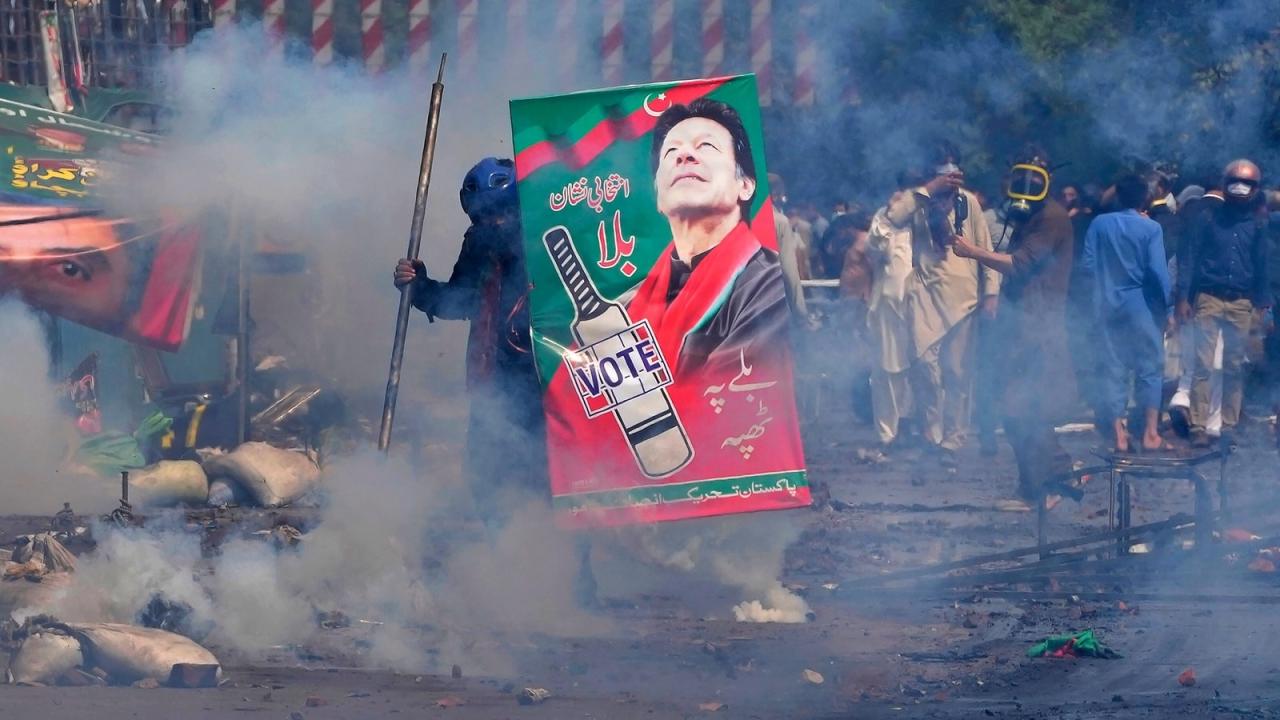
The ongoing pressure on Imran Khan has profound implications for the strength and independence of Pakistan’s institutions. The crisis highlights existing fault lines within the system and raises serious concerns about the future of democratic governance. The interplay between political actors, the judiciary, the military, and other key institutions is shaping the trajectory of the nation, with potential long-term consequences for its stability and democratic development.The intense political polarization surrounding Imran Khan’s case has placed immense strain on Pakistan’s institutions.
The judiciary’s role in adjudicating these cases is particularly crucial, with decisions impacting public trust and perceptions of impartiality. Simultaneously, the military’s position remains a significant factor, influencing the political landscape and potentially impacting the stability of the government. The actions and responses of these institutions will determine the future trajectory of the country’s political and legal systems.
Judicial Independence and Impartiality
The judiciary’s role in navigating the legal battles against Imran Khan is paramount. Public perception of the judiciary’s independence and impartiality is heavily influenced by how these cases are handled. Concerns about potential political influence on judicial decisions could erode public trust in the fairness of the legal system. Historical examples of judicial decisions impacting political stability in Pakistan demonstrate the sensitivity of this issue.
A perception of bias, regardless of reality, can fuel further political instability and weaken the legitimacy of the judicial branch. The current situation necessitates a transparent and unbiased approach to ensure the integrity of the legal process and maintain public confidence.
Military’s Role in the Political Crisis
The military’s involvement, both direct and indirect, in Pakistani politics has a long history. The current crisis is no exception. While the military officially maintains a neutral stance, its influence on the political landscape is undeniable. Its actions and statements, or lack thereof, significantly shape public perception and influence the dynamics of the crisis. The potential for the military to intervene directly or indirectly adds a layer of complexity and uncertainty to the situation, raising concerns about the future of civilian control over the military and the country’s democratic trajectory.
The military’s role, or perceived role, in shaping political outcomes, even indirectly, has the potential to undermine democratic processes and civilian supremacy.
Impact on Other Key Institutions
The pressure on Imran Khan and the ensuing political turmoil affect other key state institutions. The bureaucracy, for example, may face pressure to align with specific political factions, potentially compromising its neutrality and efficiency. Similarly, the effectiveness of law enforcement agencies could be compromised if their actions are perceived as politically motivated. A weakening of these institutions undermines the rule of law and can lead to a decline in public services and increased societal instability.
The ability of these institutions to function independently and impartially is crucial for maintaining stability and promoting good governance.
Potential Threats to Rule of Law and Democratic Processes
The ongoing crisis poses significant threats to the rule of law and democratic processes in Pakistan. Erosion of public trust in institutions, coupled with increased political polarization, can lead to instability and even violence. The potential for extra-judicial actions or the undermining of judicial processes presents a serious challenge to the country’s democratic norms. The lack of accountability for those involved in political maneuvering could further weaken the rule of law and create a climate of impunity.
Maintaining the integrity of democratic institutions and upholding the rule of law are crucial for preventing further escalation and ensuring a stable and democratic future for Pakistan.
Visual Representation of Key Events
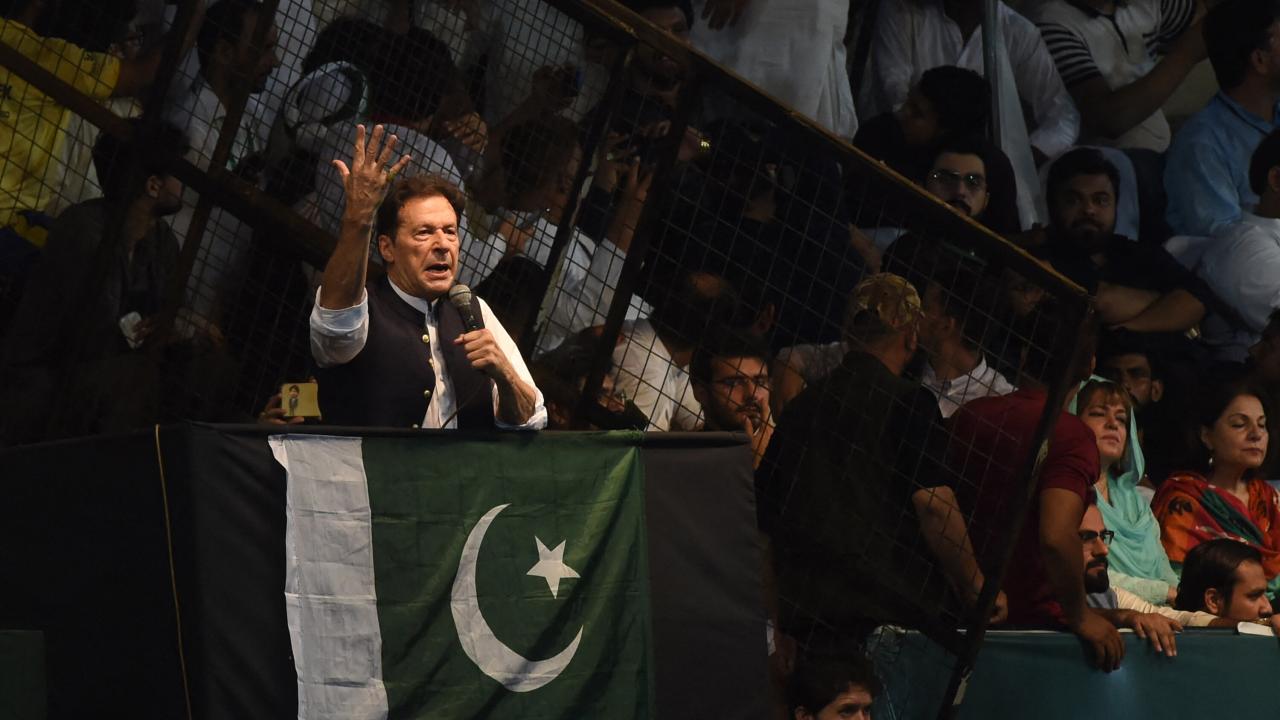
Visualizing the tumultuous events surrounding Imran Khan’s downfall requires a multifaceted approach, combining chronological timelines with evocative imagery and data-driven charts to capture the complexity of the situation. This allows for a clearer understanding of the sequence of events, the emotional impact, and the shifting public sentiment.A comprehensive visual representation necessitates more than just a simple recounting; it demands a detailed portrayal of the key moments, their impact on the public, and the resulting political landscape.
Timeline of Key Events
The following table presents a timeline of significant events contributing to the pressure on Imran Khan, highlighting their location and overall importance. It’s important to note that this is not an exhaustive list, but rather a selection of pivotal moments.
| Date | Event | Location | Significance |
|---|---|---|---|
| March 8, 2022 | No-confidence vote against Imran Khan | National Assembly, Islamabad | Imran Khan loses the vote, marking the beginning of his political downfall. |
| April 3, 2022 | Imran Khan addresses supporters after losing the no-confidence vote | Islamabad | He claims the vote was a US-backed conspiracy, igniting widespread protests. |
| May 9, 2023 | Arrest of Imran Khan | Lahore | His arrest led to widespread violence and clashes across Pakistan. |
| May 10, 2023 | Military crackdown on PTI supporters | Various locations across Pakistan | The military responded forcefully to the protests, resulting in numerous arrests and injuries. |
| November 2023 | Multiple corruption charges filed against Imran Khan | Various courts across Pakistan | These charges further complicate his legal battles and political standing. |
Hypothetical Image: A Pivotal Moment, Imran khan comes under further pressure in pakistan
Imagine a photograph taken on May 9, 2023, outside the Lahore High Court. The scene is chaotic; a throng of PTI supporters, a sea of green and white, presses against the barricades. Imran Khan, his face etched with a mixture of defiance and weariness, is being escorted by heavily armed security personnel. His expression is a study in contrasts – a flicker of anger in his eyes, a set jaw betraying his determination, but also a hint of vulnerability amidst the overwhelming crowd.
The security personnel surrounding him are grim-faced, their expressions reflecting the gravity of the situation. The background is a blur of raised fists, anxious faces, and the flashing lights of cameras, capturing the raw emotion of the moment – a pivotal point in Pakistan’s political history. The overall atmosphere is tense, charged with uncertainty and a palpable sense of unrest.
Chart Illustrating Public Opinion Shifts
A line graph could effectively illustrate shifts in public opinion regarding Imran Khan’s leadership. The horizontal axis would represent time, spanning from his election in 2018 to the present. The vertical axis would represent the percentage of public approval, ranging from 0% to 100%. Data points would be plotted based on various credible opinion polls conducted by reputable organizations during this period, such as Gallup Pakistan or PILDAT.
The line connecting these data points would visually represent the fluctuations in public support for Imran Khan throughout his tenure. Different colors could be used to distinguish between different demographic groups (e.g., urban vs. rural, age groups). The methodology section would clearly state the sources of data (specific polls and their methodologies) and any limitations of the data.
A key would clearly define the different lines representing various demographics or data sources. This chart would provide a visual representation of how public opinion shifted in response to major events, highlighting periods of high and low support.
The pressure on Imran Khan is undeniably immense, a situation that extends far beyond the individual and impacts Pakistan’s political, economic, and social fabric. The ongoing legal battles, the fluctuating public opinion, and the international reactions all contribute to a volatile atmosphere. The coming weeks and months will be crucial in determining the future of Pakistani politics and its stability, with the consequences of this power struggle rippling far and wide.

